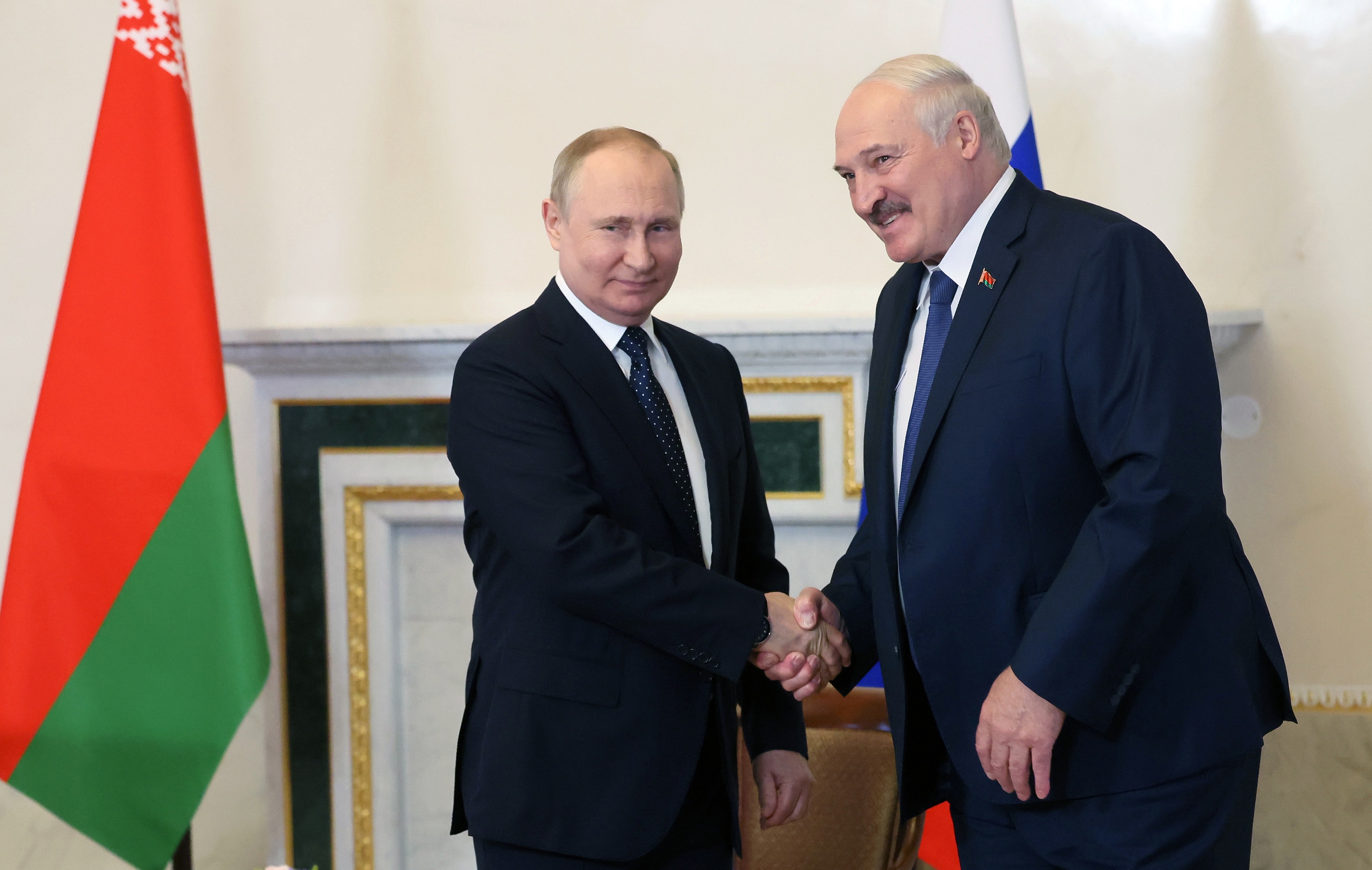Putin promises Belarus nuclear-capable missiles to counter ‘aggressive’ West
Sign up now: Get ST's newsletters delivered to your inbox

Russian President Vladimir Putin (left) and Belarusian President Alexander Lukashenko during their meeting in St Petersburg.
PHOTO: EPA-EFE
Follow topic:
MOSCOW (REUTERS) – Russian President Vladimir Putin on Saturday (June 25) told his counterpart from Belarus that Moscow would supply Minsk with missile systems capable of carrying nuclear weapons, the Russian foreign ministry said.
At a meeting with Putin in St Petersburg, Belarus President Alexander Lukashenko expressed concern about the “aggressive”, “confrontational” and “repulsive” policies of its neighbours Lithuania and Poland.
He asked Putin to help Belarus mount a “symmetrical response” to what he said were nuclear-armed flights by the US-led Nato alliance near Belarus’ borders.
Putin said he saw no need at present for a symmetrical response, but that Belarus’ Russian-built Su-25 jets could, if necessary, be upgraded in Russian factories.
“We will transfer Iskander-M tactical missile systems to Belarus, which can use both ballistic and cruise missiles, both in conventional and nuclear versions,” a foreign ministry summary of the meeting quoted him as saying.
The Iskander-M, a mobile guided missile system codenamed “SS-26 Stone” by Nato, replaced the Soviet “Scud”. Its two guided missiles have a range of up to 500km and can carry conventional or nuclear warheads.
Parts of the meeting between the two men were televised.
“Minsk must be ready for anything, even the use of serious weaponry to defend our fatherland from Brest to Vladivostok,” Lukashenko said, putting Belarus and its close ally Russia under one umbrella.
In particular, he asked for help to make Belarus’ military aircraft nuclear-capable.
Tensions between Russia and the West have soared since Moscow sent troops into Ukraine four months ago, alleging among other things that Nato planned to admit Ukraine and use it as a platform to threaten Russia.
Russia’s move has not only triggered a barrage of Western sanctions but also prompted Sweden and Russia’s northern neighbour Finland to apply to join the Western alliance.
In the past week, Lithuania in particular has infuriated Russia by blocking the transit of goods subject to European sanctions travelling across its territory from Russia, through Belarus, to Russia’s Baltic exclave of Kaliningrad.
Russia has termed it a “blockade”, but Lithuania says it affects only 1 per cent of the normal goods transit on the route, and that passenger traffic is unaffected.

